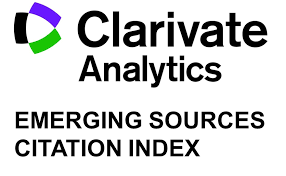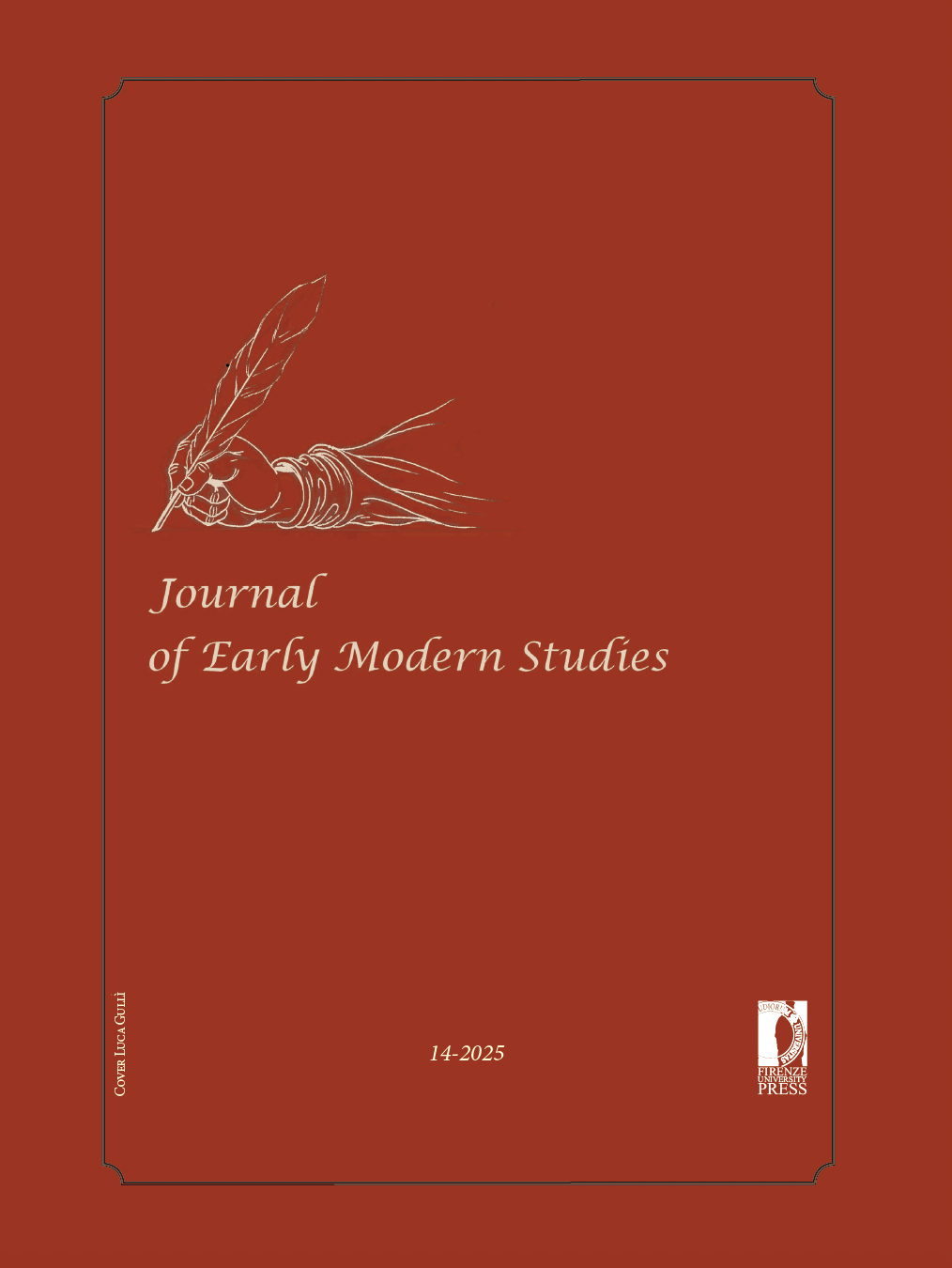About
Journal of Early Modern Studies (JEMS) is an open access peer-reviewed international journal that promotes interdisciplinary research and discussion on issues concerning all aspects of early modern European culture. It provides a platform for international scholarly debate through the publication of outstanding work over a wide disciplinary spectrum: literature, language, art, history, politics, sociology, religion and cultural studies. JEMS is open to a range of research perspectives and methodological orientations and encourages studies that develop understanding of the major problematic areas relating to the European Renaissance.









ISSN 2279-7149 (online)
Editors:
Donatella Pallotti, Università di Firenze, Italy
Paola Pugliatti, Università di Firenze, Italy
The Journal of Early Modern Studies is indexed in:





CALL FOR PAPERS: VOL. 16 - 2027
Diplomacy and the Circulation of Political Information in Early Modern Europe
Edited by Brendan Dooley and Stefano Villani
Diplomatic documents – letters, dispatches, and final ambassadorial reports – have long been among the richest sources for studying political culture and communication in early modern Europe. Produced at the intersection between information, negotiation, and representation, these texts illuminate both the mechanisms of statecraft and the wider processes through which knowledge about events, persons, and policies was produced, transmitted, and received across linguistic, confessional, and political frontiers. From the late fifteenth to the eighteenth century, diplomatic networks became crucial conduits for the exchange of political intelligence and news, linking courts and chancelleries to transnational communities of readers and informants..... Read More PDF
Current IssueVol 14 (2025): The Politics of Book History: Then and Now
Published July 1, 2025

